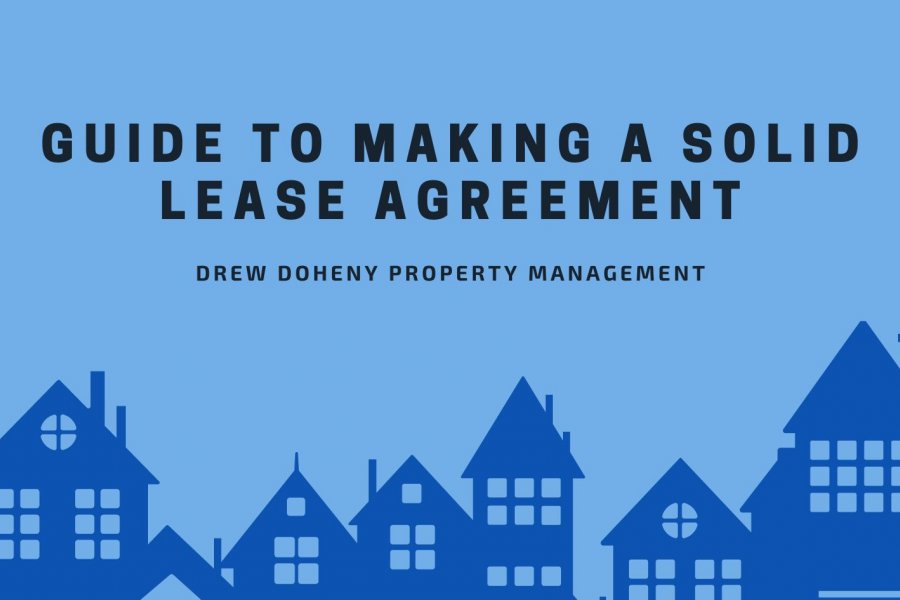
As a landlord, whether it is your first time or if you've done it before, a solid lease agreements are crucial to the success of your business. Simply put, a lease agreement is a contract between a tenant and a landlord which highlights both parties’ rights and responsibilities.
A lease agreement also lasts for a certain duration, usually a year. As a landlord, it’s important for you to create a lease that is comprehensive in order to protect yourself and your rental unit.
Elements of a Solid Lease Agreement
Here are essential elements to consider when creating lease agreements:
Basic Information of Landlords and Tenants
Including the basic information of you and your prospective tenants in your lease agreement is absolutely necessary. Things like first and last names, contact details, lease term and identification numbers allow for verification of all parties involved in the agreement.
Signatures of Both Parties
It’s essential to add the signatures of both parties in a solid lease agreement since it prevents disputes and legal issues that might arise if one party claims they didn’t agree to specific terms. A signed lease agreement is a legally binding contract.
This means that both parties are obligated to fulfill the terms of the agreement. If either party fails to comply with the lease agreements terms, they can be held legally accountable thoughout the entire fixed term lease.
Clauses
Clauses clarify the lease agreement's terms and conditions. They define the responsibilities of both the landlord and the tenant, making it easier for both parties to understand what’s expected of them thoughout the lease term.
Besides that, clauses can also help ensure the lease agreement complies with local and state laws including landlord tenant laws. For example, if the landlord is required to provide a certain amount of notice before entering the unit, a clause can be added to reflect this requirement.
Security Deposit Clause
By including security deposit laws in the lease agreement, landlords can ensure they have a legal right to hold onto the deposit. A lease contract that clearly outlines security deposit laws can prevent property owner and tenant disputes.

A security deposit clause might specify the amount the tenant needs to pay, the conditions for its return and the circumstances under which it can be withheld. Including this clause also provides transparency for both parties.
Occupancy Limits
Occupancy limits are typically set by local building codes and fire safety regulations to ensure the safety and health of tenants. By including these limits in the rental lease agreement, landlords can ensure their properties are not being over-occupied, which could create unsafe living conditions.
Besides, more people living in a residential property can result in more wear and tear, which can result in higher maintenance and repair costs for the landlord. By limiting the number of occupants, you can help prevent excessive damages to your rental.
Landlord Rights and Responsibilities
Including landlord rights in a lease agreement can help protect your interests as a landlord. For example, the lease agreement might include the right to enter the unit to make repairs or the right to evict the tenant for violating the lease agreement.
Overall, including landlord rights and responsibilities in a lease agreement is important because it sets expectations, ensures legal compliance, ensures property maintenance and protects the landlord's interests.
Tenant Rights and Responsibilities
Including tenant rights and responsibilities in your rental agreement will help clarify the tenant's obligations, including to pay rent on time and maintaining your rental well. Establishing these tenant responsibilities from the beginning will help prevent misunderstandings between the tenant and the property owner in the future.

Adding tenant rights and responsibilities to a solid lease agreement is essential because it sets the tenant's expectations, ensures legal compliance, clarifies obligations, and protects the tenant's interests.
By including these provisions in the written agreement, both parties can have a clear understanding of their respective roles and responsibilities, which can help prevent disputes and misunderstandings in the future.
Information About Lease Termination
Including a provision about lease termination in your lease will help clarify lease termination terms, outline the notice period and protect the interests of both you and your tenants in the case that a tenant breaks the lease.
By including these provisions in the lease agreement, both the property owner and the tenant will have a clear understanding of the terms and conditions of the lease and can avoid future confusion or legal disputes.
Disclosures
Disclosures in a rental agreement can help prevent misunderstandings between landlords and tenants. By disclosing important information upfront, both parties can have a clear understanding of the terms and conditions of the lease, which can help prevent disputes and legal issues.

Disclosures can also help protect tenant interests by providing important information about the property, like whether it contains lead-based paint or whether the home is in a flood zone. This information can help tenants make informed decisions about whether to rent your property. Disclosing this information will also help protect their health and safety.
In a Nutshell: The Importance of a Solid Rental Agreement
A lease agreement needs to be comprehensive and solid as it serves as a legally binding contract between the landlord and the tenant. It can facilitate clear communication and transparency between the landlord and the tenant. A well constructed lease can also clarify expectations, obligations and procedures, which can help prevent misunderstandings and legal disputes.
Work with a professional property manager like Drew Doheny Property Management Team to avoid errors in your lease agreement. Our experienced property managers are familiar with local laws and regulations and can ensure your rental is in compliance.
If you have any questions about lease agreements or our property management services, contact us at (912) 856-9065.
